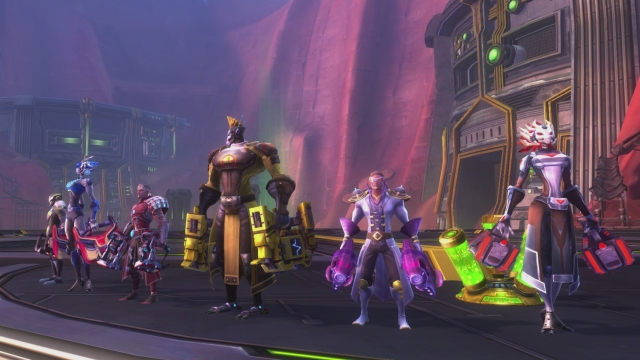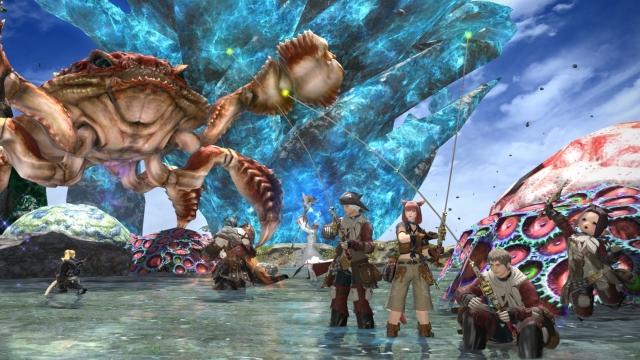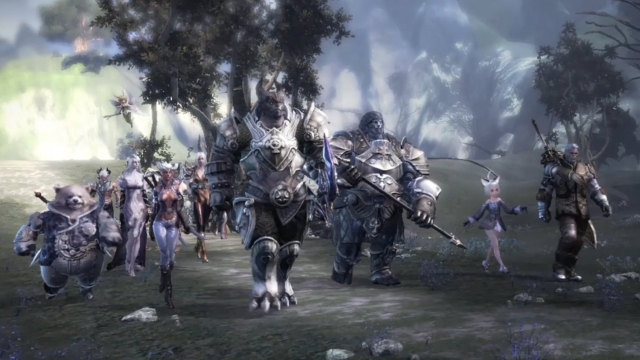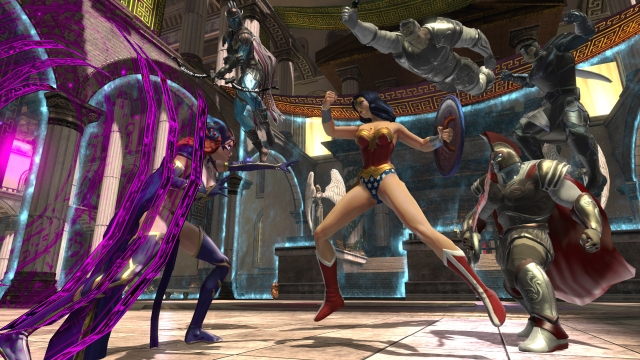The Internet can be a really, really gross place. If you need proof of that for some reason, go read YouTube comments.
It shouldn’t be all that odd to say that we expect games to be a place wherein we don’t have to deal with that. Online games are in and of themselves capable of being really gross places, but ideally a guild is a place where people don’t have to deal with that. You might have to deal with gross random players at times, but it seems like a fairly non-controversial thing to ask that your League of Legends team doesn’t force you to deal with that on a regular basis.
That can be difficult in and of itself, though. How do you make a guild into a space where everyone can be comfortable? With work, obviously, but where do you even start?
Starting from principles
I’ve mentioned before that every guild should have a focus, but perhaps it’s important to step into a slightly more abstract space from that. Every guild should have principles. A focus is in and of itself comprised of principles working in tandem, but there are principles that need not be foundations of a focus while still being important.
To use an example other than an inclusive space, having a bilingual guild would constitute a guiding principle. That in and of itself is not a focus — if your guild is composed chiefly of people who speak both English and Spanish, it doesn’t say what your guild is working toward or wants to accomplish. But it does still serve as a principle, since players who don’t speak both languages will be at something of a disadvantage and it’s one of the things that the guild is meant to be serving. Principles, on their own, are just guidelines.
So having inclusivity as a foundational principle of your guild is a good thing, and it’s a fine place to start. It says something about your guild that you want to accomplish things without violating that primary point of reference. Sure, you want to accomplish other things as well, but you don’t want to lose sight of having your guild as a safe space along the way.

Police it softly
Once you’ve made the decision that you’re keeping this space safe for everyone, you’ll quickly find that you have to make massive changes to your guild. And by “massive changes” I mean that you’ll probably have to keep a little more of an eye on chat for a bit as people start to think about what they’re saying, then it’ll become pretty invisible.
A lot of the time, it really is just that simple. Assuming your members are on board (and there’s no reason to assume that they’re not), most of what needs to be done is just have a very gentle policy of asking someone not to say something that makes other members feel uncomfortable. In other words, exactly the sort of thing you would already be doing.
If a guild member was telling a sexually explicit story in guild chat, you’d probably ask them to stop. If someone was typing out the full text of Mein Kampf, you’d ask them to stop. If someone was sharing a bunch of spoilers for Game of Thrones when the new episode had just aired, you’d ask them to stop. This is the same thing, through and through. Someone is doing something to make the guild uncomfortable, so you ask them politely to stop doing so. That’s it. That’s all that needs to be done.
More often than not, the member in question either didn’t realize that they were doing anything wrong or didn’t actually think about it. Which is, quite frankly, totally normal and fine. It’s the equivalent of asking your roommate to stop singing a song that’s bothering you, something you ask briefly and then move on from.
Of course, that’s not all of the work you’ll need to do. Just most of it. Sometimes, you’ll have to step things up a bit.

Keep a firm hand
The fact that everyone is on board with creating an inclusive space does not necessarily mean that everyone is on the same page about what that means. You are, inevitably, going to wind up with people who might have the best of intentions but will insist, up and down, that what they’re doing isn’t really bothering anyone, that the people who are complaining are just doing it for attention or they’re just plain wrong.
This is where it gets complicated. Because the point of being inclusive, first and foremost, is in making sure that that space is safe. It means that you sit down with members like this and explain that however much they might think no one is bothered by what they’re doing, if no one was actually bothered it wouldn’t be an issue that kept coming up. It’s not about being mean-spirited, it’s about the reality that someone is uncomfortable about this and it needs to stop.
It’s also important to keep in mind that “safety,” in this case, is not the same as “everyone gets along.” The point is not that everyone has to have the same tastes or even political opinions, just that everyone should feel as if they’re not going to be attacked or mocked for fundamental parts of their identity. Someone who is upset because the entire guild is talking about how terrible Man of Steel was as a film is not being stuck out in the cold; someone who is getting really upset at a guild member’s repeated use of the adjective “gay” as a pejorative is bringing up a legitimate issue.
Should you explain this all to the member in question who isn’t changing and still find that the same things are happening? Then it’s time to treat that like any other rule violation. Penalties are leveled, and eventually that person can’t be a part of the guild any longer. A safe space means nothing if you aren’t willing to go the distance to make it safe when it counts.

Realize what it isn’t about
At its core, having a guild as an inclusive space is about what I mentioned in the opening paragraphs — it’s about making sure that the members of your guild can play a game together while feeling safe from dehumanizing talk and actions. That’s all. That means learning and listening, and in some cases it means changing familiar behaviors that have become worn into our brains.
You don’t necessarily want everyone in your guild to agree, and it’s entirely valid to say that you don’t want lengthy discussions in your guild about social issues. Even in a guild designated as a safe space, I think there’s plenty of space to say that you don’t want to referee a debate about, say, proper inclusiveness of language for trans individuals; it’s enough to say that the language used shouldn’t be bothering anyone. Understanding why it’s bothering someone is important, but you don’t need to turn your guild into a think-tank for the best words to use.
If it helps, think of it as the uncle defense. We all have that uncle, the one who says things that no one would ever say in a mixed audience. Racist stuff that would be entirely unacceptable in a larger context, for example. But your uncle says that at family gatherings, because he knows he can get away with it then. He knows that no one is going to call him a racist or say that it’s not acceptable or that he shouldn’t say those things.
You will always have players who treat guilds like that. Making an inclusive space is, fundamentally, the art of telling your racist uncle that it’s not all right to say those things here, either. It’s a reminder that the online space is still one of mixed company, and toxic views are still just as toxic when surrounded by people playing orcs and elves.
It’s about making sure that everyone can be comfortable and have fun playing games. Which, really, should always be the point.







Published: May 25, 2016 05:37 am